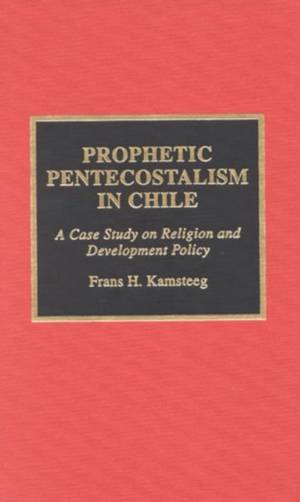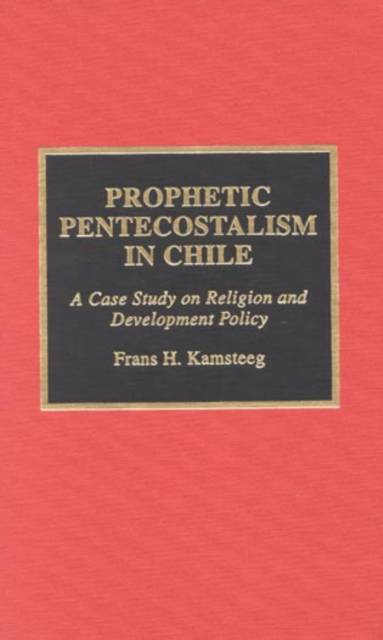
- Afhalen na 1 uur in een winkel met voorraad
- Gratis thuislevering in België vanaf € 30
- Ruim aanbod met 7 miljoen producten
- Afhalen na 1 uur in een winkel met voorraad
- Gratis thuislevering in België vanaf € 30
- Ruim aanbod met 7 miljoen producten
Zoeken
€ 131,45
+ 262 punten
Omschrijving
Prophetic Pentecostalism in Chile provides a detailed description of the vicissitudes of a small Chilean Pentecostal church, the Misión Iglesia Pentecostal. During the 1960s and 1970s, its leaders attempted to reshape the social and politically conservative face of Chilean Pentecostalism by introducing progressive social ideas into the lives of their church members. This church, which was among the first Pentecostal churches to become members of the World Council of Churches, also created its own development organization supporting social work among Chile's popular classes, with the help of Western donor organizations. Both the progressive church leaders and the development organization tried to organize individual Pentecostals against social and political injustice, while the majority of Pentecostal churches actively supported the military regime of General Pinochet. This anthropological case study describes how this effort at consciousness-raising affected the lives of Pentecostal men and women in the working-class neighborhood of Santiago. Ultimately, the book is a documented illustration of the limited impact that the message of prophetic Pentecostalism of a group of church leaders had on ordinary Chilean church people.
Specificaties
Betrokkenen
- Auteur(s):
- Uitgeverij:
Inhoud
- Aantal bladzijden:
- 292
- Taal:
- Engels
- Reeks:
- Reeksnummer:
- nr. 15
Eigenschappen
- Productcode (EAN):
- 9780810834408
- Verschijningsdatum:
- 5/11/1998
- Uitvoering:
- Hardcover
- Formaat:
- Genaaid
- Afmetingen:
- 164 mm x 227 mm
- Gewicht:
- 489 g

Alleen bij Standaard Boekhandel
+ 262 punten op je klantenkaart van Standaard Boekhandel
Beoordelingen
We publiceren alleen reviews die voldoen aan de voorwaarden voor reviews. Bekijk onze voorwaarden voor reviews.











